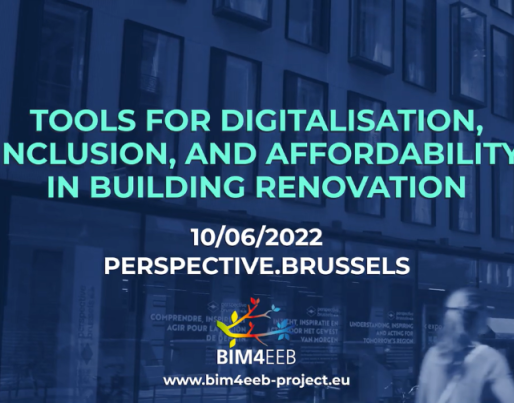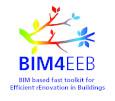Video | BIM4EEB roundtable - Tools for digitalisation, inclusion, and affordability in building renovation

Video | BIM4EEB roundtable - Tools for digitalisation, inclusion, and affordability in building renovation
In this short roundtable session, the BIM4EEB project panelists discussed how the digital tools developed by the project can facilitate the inclusion, accessibility and affordability during the building renovation process. The partners also discussed how public and private sector can benefit from the tools.
This roundtable was celebrated the 10th June 2022 in a hybrid format: Brussels (Belgium) & Online.
Building upon the main trends and potential that digital technologies offer for the AEC industries, BIM4EEB has developed a comprehensive toolkit and an exemplary body of pilot experiences over the last 3 years. Oriented to tackle the renovation of the European building stock challenge, the tools developed and tested encompass a Common Data Environment platform for information management and collaborative work as well as solutions for 3D scanning and translation into IFC models helping to embrace precise and customised design decisions from early stages of the process. Then, besides energy modeling and performance analysis options, the BIM4EEB project and toolkit has also addressed the construction and on-site intervention phase and the interaction with inhabitants and building management stakeholders. The latter functionalities help the works’ planning to run smoothly, even when the dwellers remain using the building during the renovation process.
Pilot projects were developed in Italy Poland and Finland with interesting and positive feedback. Some of these experiences were presented in the New European Bauhaus Festival partner event in Brussels earlier in June 2022.
The project has come to an end this year (June 2022) and future partnerships and further deployment of the pilot-tested technics and tools are promising, helping the market in the step-change required for a decarbonized built environment.
Check the video of the BIM4EEB roundtable "Tools for digitalisation, inclusion, and affordability in building renovation".
About BIM4EEB project
In short, BIM4EEB is a European funded project. The consortium encompasses partners from 17 organization from 11 European countries. In the last three and half years, the partners have developed a digital toolset to improve the building retrofitting process. The tools aim to improve the collaboration of the design and construction team, and also better communicate with residents and other stakeholders during the refurbishment process.


